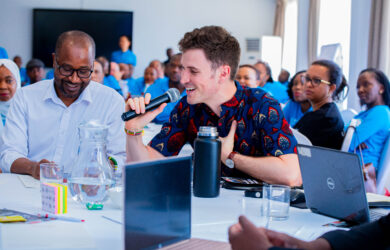Gates alumna Dr Hilary Levey has had articles about her research published in several national publications in the US.
A Gates alumna has had articles published in the Huffington Post and several other national publications in the US in an effort to share her academic research with a broader audience.
Dr Hilary Levey [2002] says there are important benefits to getting articles published in the mainstream media. In the last month alone she has had three articles published:
– on youth sports injuries in the Huffington Post, arguing for more training regulations for all competitive activities, uniform safety standards and coaching certifications for those who work with kids.
– on sports injuries and team doctors for the Bleacher Report
– on gifted kindergarten testing for Norton Books’ website, discussing inequalities in parents’ access to information about gifted kindergarten tests in the US.
In June she had an opinion piece on kids and reality TV published in USA Today. In the article she highlighted the gaps in legal protection for children who are the subject of reality TV shows, and who are often exploited by parents who seek to make money from the simple fact that their family is unusual.
Dr Levey studied in Cambridge for the MPhil in Modern Society& Global Transitions, before returning to the US for PhD at Princeton University on children’s competitive activities. She is now a post-doctoral fellow at Harvard University, studying children’s sports injuries.
She says there are many benefits to trying to publicise research more widely, including helping others to better understand the world and themselves. She adds that it also helps researchers to think more clearly about their work. “Explaining findings in simple language can help clarify the results for us as researchers,” she says.
She usually ties her articles into current events and says blogs and opinion pieces are a particularly effective way of sharing research linked to events. She is also in regular contact with reporters about issues related to her work. Although she counsels that it can be more difficult to get your point across on radio and television than in blogs and opinion pieces, she says it is a great way to reach new audiences and may even improve her communication skills as a lecturer.
One benefit of sharing her research publicly is the feedback she gets from those who are likely never to have read an article in an academic journal. “I have especially enjoyed getting questions and comments from students in high school and college,” she says. “Getting others’ perspectives, and seeing what matters to them, has pushed me to think about issues I may not have thought were as important.”












